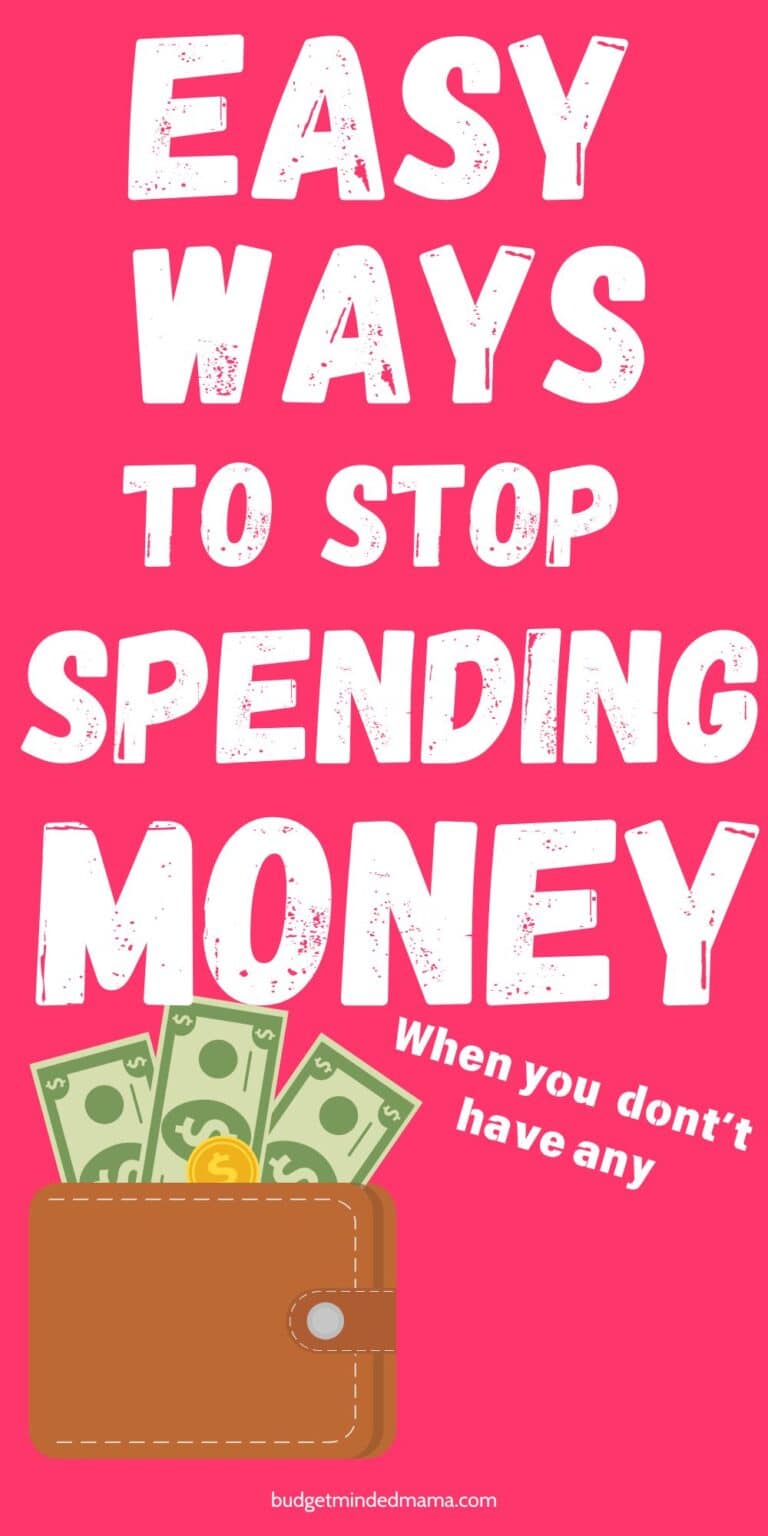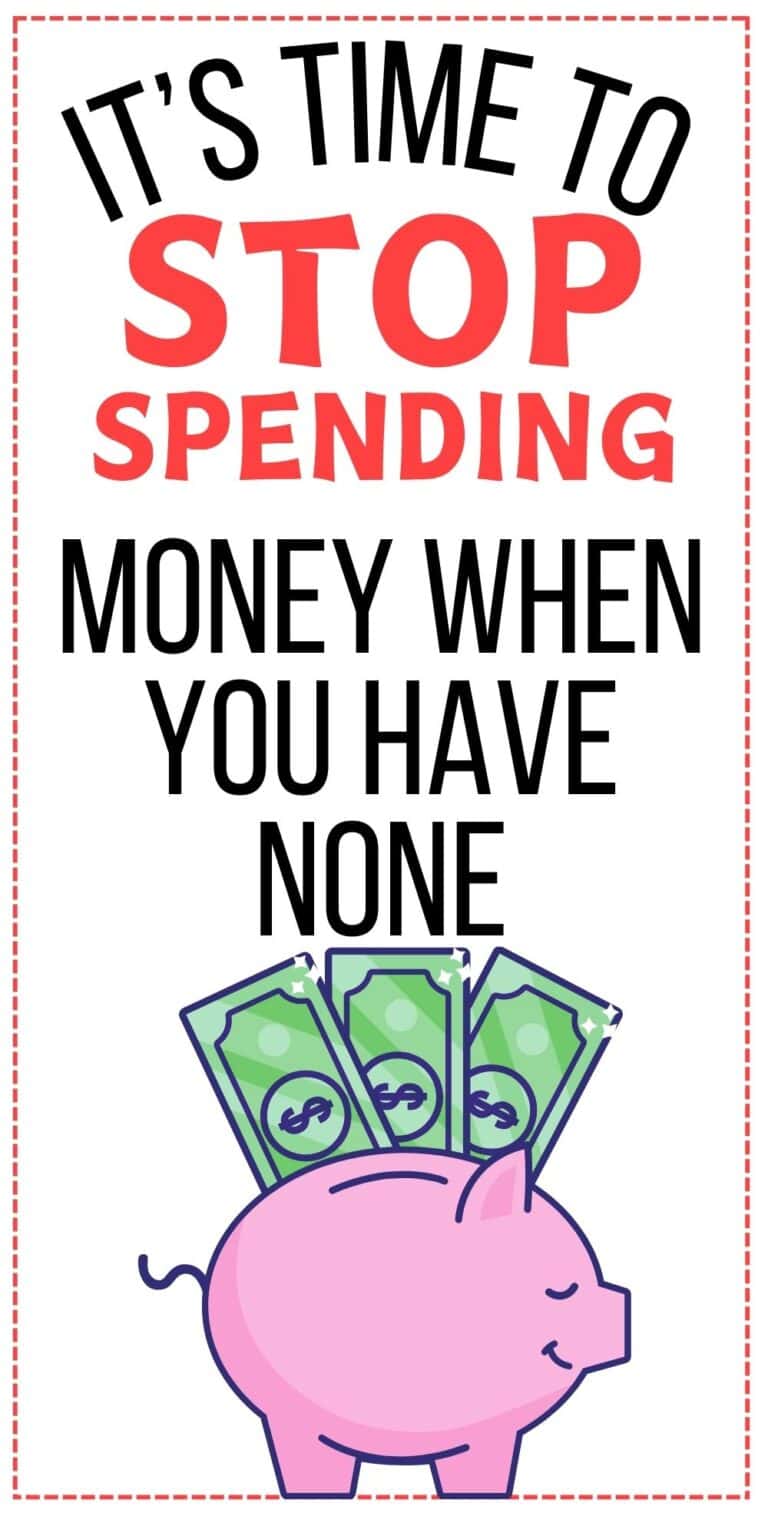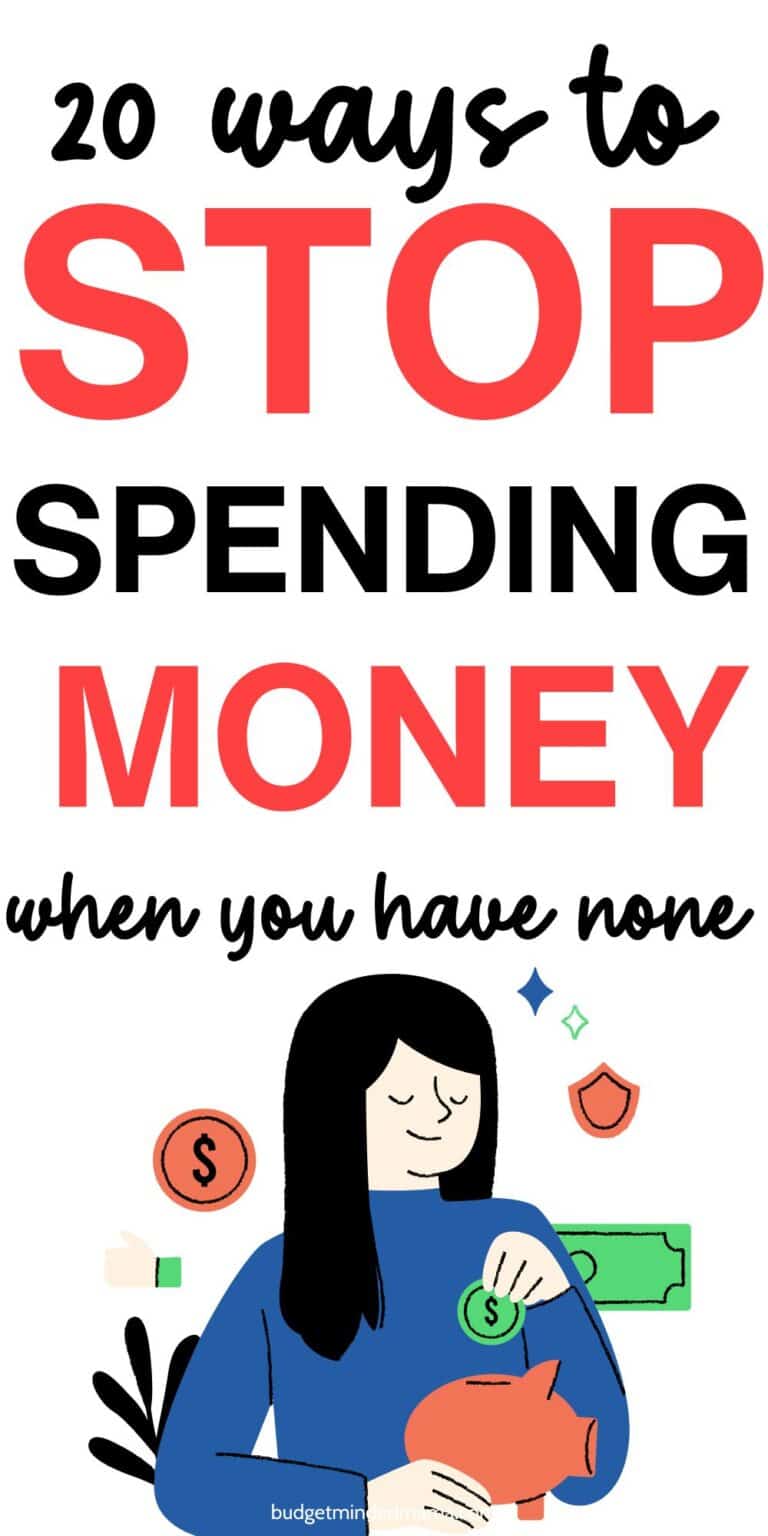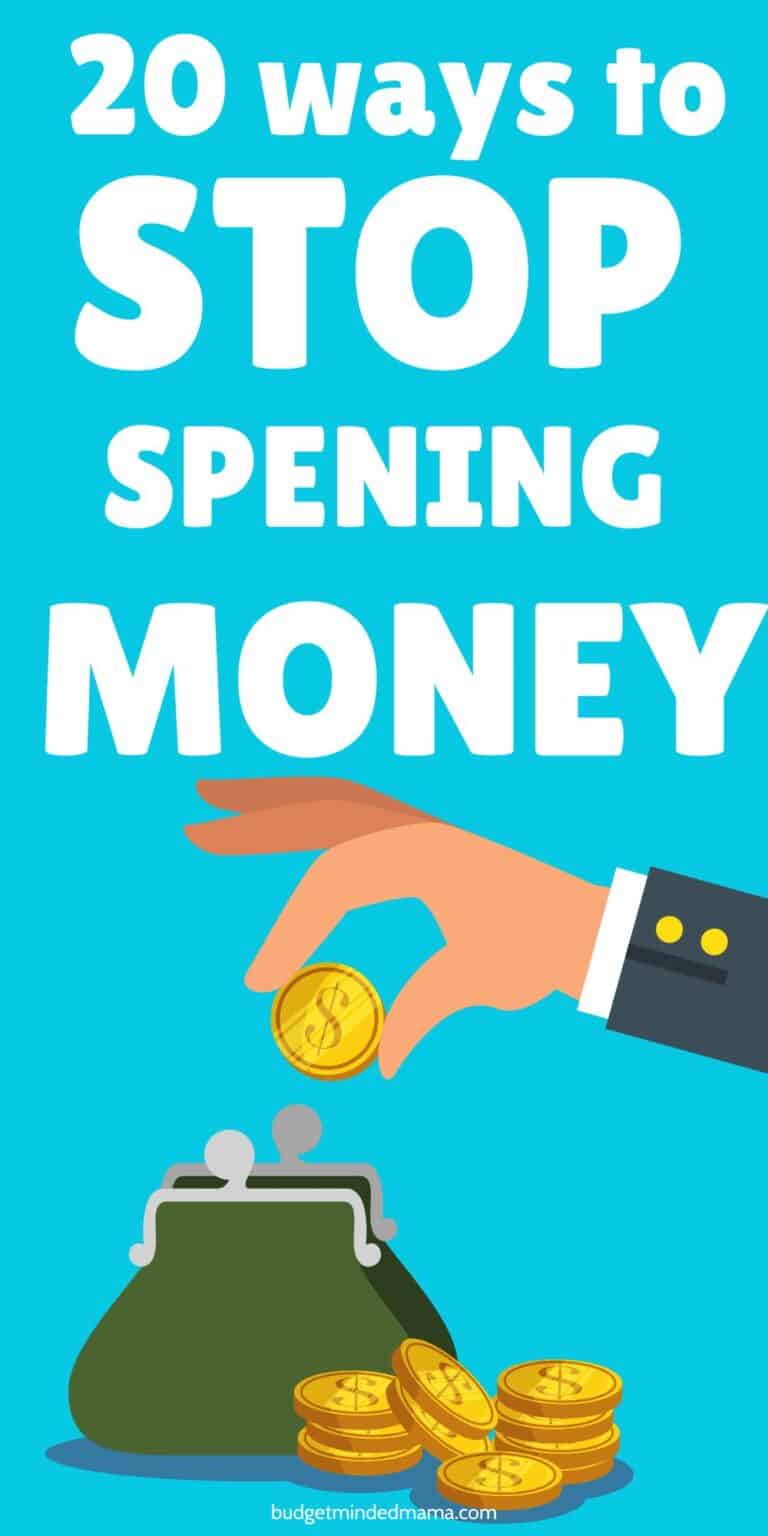If you’re tired of stressing over money and wondering how to budget your money better, I totally get it!

It’s so easy to overspend when you’re juggling so many things, and it can feel like your budget is constantly slipping through your fingers.
But it’s not as hard as it seems to live cheap by saving money!
There are simple, practical ways to stop spending money you don’t have, and it starts with creating a budgeting plan that works for you.
It’s all about making small changes that add up over time—no fancy tricks, just realistic ideas that anyone can try.
Let’s get to it!
Money Education

Getting your finances in check starts with knowing the basics.
The more you understand about how money works, the easier it is to make smart choices and avoid spending what you don’t have.
Money education isn’t just for financial experts—it’s for anyone who wants to stop stressing about their budget and make more intentional decisions.
By learning about money management, you’ll feel more empowered and confident when it comes to your spending habits.
1. Learn Basic Finance Principles
Start by familiarizing yourself with key concepts like budgeting, debt management, and saving.
You don’t need to be an expert overnight, but knowing the basics will give you a solid foundation for making smarter choices.
Understanding how interest works or why credit cards can be tricky can help you avoid getting caught in financial traps that lead to overspending.
The more you know, the better you’ll be at managing your money!
2. Read Personal Finance Books or Blogs
There’s a ton of helpful advice out there, and reading just a few articles or books can change the way you think about money.
It’s not about getting overwhelmed with technical terms—it’s about finding tips and strategies that work for you.
Many finance blogs (like this one!) offer practical advice you can start using today, like how to set up a budget, tips for saving, or ways to cut down on debt.
In fact, you can check out some of my other posts to get started:
- Budgeting for Beginners: Step-By-Step Plan
- Have These Budget Categories to Build a Simple Budget
- 65 Ultimate Money Saving Strategies
- How to Live Below Your Means (& Still Save Money)
3. Track Your Expenses
It’s eye-opening to see exactly where your money is going.
Use an app or a simple spreadsheet to write down every expense for a month.
You might be surprised at how much you spend on little things like takeout, coffee, or random online purchases.
Once you see the numbers, it’s easier to spot areas where you can cut back and focus your spending on what truly matters.
4. Take Free Online Finance Courses
You don’t have to pay for expensive classes to start learning.
Many websites offer free courses that cover everything from saving to investing.
These can be a great way to get familiar with more advanced concepts without the pressure of a classroom setting.
Plus, it’s a great way to stay motivated and excited about your financial journey!
5. Follow Financial Experts on Social Media
Financial influencers are everywhere these days, and many offer bite-sized tips on budgeting, saving, and making the most of your money.
Following a few experts on platforms like Instagram or YouTube can keep you inspired and help you stay up to date with practical financial advice.
Whether they’re sharing budgeting hacks or tips for cutting costs, you’ll be able to learn from people who are genuinely helping others succeed financially.
Cash Budgeting

Cash budgeting is one of the most straightforward ways to avoid overspending.
By sticking to cash for certain categories, you can control exactly how much you’re spending and keep things in check.
It’s a hands-on approach that really helps you visualize how your money flows, making it easier to avoid falling into the trap of overspending without even realizing it.
6. Use The Envelope Method
The envelope method is simple but effective.
Here’s how it works: set aside a certain amount of cash for specific categories—groceries, entertainment, etc.
Once the cash is gone, you stop spending in that category for the month.
It’s a powerful way to stick to your budget because it makes the money feel real, rather than abstract numbers on a spreadsheet.
7. Pay Bills Immediately
As soon as you get a bill, pay it right away.
I know it can be tempting to put it off, but the sooner you pay it, the less likely you are to forget about it or let it slip into the next month.
By knocking out bills as they come in, you free up mental space and avoid late fees that just add to your financial stress.
Plus, you’ll feel way more in control of your finances.
8. Use Cash for Everyday Expenses
Paying with cash for everyday items like coffee, lunch, or gas helps you keep track of how much you’re spending in real-time.
It’s easy to lose track when using cards, but when you hand over cash, you can physically see how much is left in your wallet.
It’s a small shift, but it makes you more mindful about spending on non-essentials.
9. Set A Weekly Cash Limit
If using cash for specific categories works for you, consider setting a weekly cash limit for things like groceries or fun activities.
This helps keep you on track without feeling like you’re depriving yourself.
If you hit the limit, it’s a reminder to pause and think about what’s really necessary for the week.
10. Use A Zero-Based Budget
A zero-based budget means you give every dollar a job.
You plan your expenses down to the last cent, so when the month ends, your income minus expenses equals zero.
This approach makes it so that there is no money is “leftover” to be spent impulsively.
It’s a great way to stay on top of your finances and stay disciplined with how you manage your cash flow.
Frugal Habits

Living frugally doesn’t mean you have to sacrifice fun or quality—it’s all about being smart with your resources.
Little habits like cooking at home, using coupons, or buying secondhand can save you big in the long run.
And adopting frugal habits can help you prioritize your spending and stick to your goals without feeling restricted.
11. Meal Prep and Cook at Home
Meal prepping saves both time and money.
When you cook in bulk, you can portion out meals for the week, cutting down on last-minute takeout or pricey lunches.
Not only is it cheaper, but it’s often healthier too.
And if you plan meals around sales or items already in your pantry, you’ll stretch your budget even further.
12. Buy Secondhand Items
Secondhand shopping is a win-win!
You can score quality items for a fraction of the price of new ones.
Whether it’s clothing, furniture, or electronics, many secondhand items are just as good as new—and sometimes even better, since they’re made with higher-quality materials.
Plus, you’re saving money and being eco-friendly at the same time.
13. Cut Unnecessary Subscriptions
Take a close look at your monthly subscriptions—streaming services, gym memberships, apps, magazines—and ask yourself if they’re really adding value.
If you’re not using something regularly, cancel it.
Cutting back on unnecessary subscriptions is an easy way to save without changing much else about your lifestyle.
Trust me, your bank account will thank you!
14. Do DIY Projects
Why pay someone else when you can do it yourself?
Taking on simple DIY projects—whether it’s fixing a leaky faucet or making your own home décor—can save you a lot of money.
It’s rewarding to see the results of your hard work.
Start small and build confidence, and you’ll be amazed at how much you can do on your own.
15. Use Coupons and Discounts
Don’t underestimate the power of coupons and discounts!
Before making a purchase, check for any available coupons or promo codes.
It only takes a few extra minutes, but it can lead to significant savings.
Whether it’s online or in-store, using a coupon is an easy way to get the most bang for your buck.
More Ways to Stop Spending Money

Sometimes it’s not about big changes—it’s the small, everyday choices that add up.
By being mindful about your spending and creating simple strategies to stick to your budget, you can stop spending money you don’t have.
These tips can help you stay focused on what really matters, and keep your finances on track.
16. Avoid Impulse Shopping
Impulsive purchases are one of the quickest ways to blow through your budget.
To avoid this, make a list before you go shopping and stick to it.
If you find something you “just have to have,” step back and give yourself a few minutes to think.
More often than not, you’ll realize you didn’t need it in the first place.
17. Unsubscribe from Marketing Emails
Those “limited-time offers” can be really tempting, but they’re designed to get you to spend money you don’t need to.
Unsubscribe from marketing emails to avoid the constant bombardment of sales pitches.
With fewer temptations in your inbox, it’s easier to stay focused on your financial goals.
18. Set Financial Goals
Having clear financial goals gives you something to work toward, whether it’s building an emergency fund, saving for a vacation, or paying off debt.
When you know exactly why you’re budgeting, it’s easier to say no to non-essential spending.
Each time you make a smart choice, you’re one step closer to reaching your goals!
19. Practice The 24-Hour Rule
When you see something you want to buy, wait 24 hours before making the purchase.
This simple rule helps you avoid impulse buys and gives you time to think about whether you really need it.
More often than not, you’ll realize you can do without it or find a better deal down the road.
20. Do A No-Spend Challenge
Pick a week (or even a month) to challenge yourself not to spend on non-essential items.
Use this time to focus on saving or knocking out any debt.
It’s a great way to reset your habits and remind yourself how much money you can save when you prioritize only the essentials.
Take Control of Your Money Today!
By taking small steps to budget your money wisely, adopt frugal habits, and educate yourself about your finances, you’ll be in a much stronger position to stop spending money you don’t have.
It doesn’t happen overnight, but with a little discipline and a lot of motivation, you can start seeing those savings add up.
Remember, every dollar you save today is one you can use for something more important tomorrow.
Keep going, stay focused, and know that every effort, no matter how small, is a step in the right direction!



